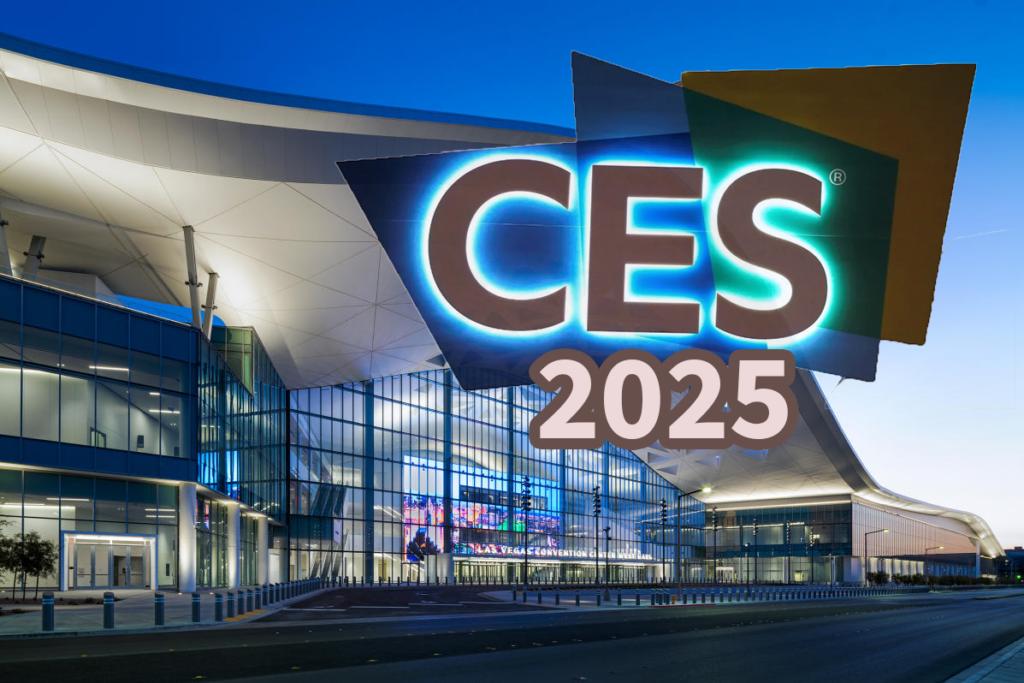
From January 7 to 10, 2025, the eyes of the global consumer electronics industry focused on Las Vegas, where the "DIVE IN" (immersion) themed CES 2025 global Consumer electronics Show kicked off. This annual event is expected to attract more than 150,000 industry elites and more than 4,000 exhibiting companies to witness and promote the latest innovation and development in the field of consumer electronics.
Artificial intelligence (AI) is undoubtedly the core highlight of CES 2025, and its influence has permeated every aspect of consumer electronics, from smart homes to personal mobile devices to digital health solutions, AI technology is reshaping our lives at an unprecedented rate. As an industry leader, Jen-Hsun Huang, CEO of Nvidia Corporation, will deliver a keynote speech on the first day of the exhibition, which undoubtedly sets the tone for the future development of AI technology. According to multiple sources, Nvidia may launch AI chips designed for personal computers at the show, and these products may be based on its latest Blackwell architecture to meet the urgent needs of gamers and content creators for high-performance computing power. In addition, Nvidia may also announce its entry into the ARM-based CPU market, putting it in direct competition with existing industry giants such as Qualcomm, AMD, and Intel, further highlighting its ambitions in the AI processor field.
CES 2025 also attracted the attention of many well-known global business leaders, including Ed Bastian of Delta Air Lines, Julie Sweet of Accenture, Linda Jacarino of X Company, and Tekdra Mawakana, co-CEO of Waymo, Alphabet's autonomous driving technology unit, and others. Their presentations and presentations will undoubtedly add more diverse perspectives and depth to the exhibition.
The wide application of AI technology is not only reflected in high-end scientific and technological products, but also has quietly penetrated into every corner of daily life. From smart flower POTS to automatic cat litter boxes, from smart spice dispensers to various household appliances, AI is changing People's Daily lives with its unique charm. Costello, editor and publisher of CE Online News, pointed out that CES 2025 visitors will personally experience the "ubiquitous artificial intelligence", which is not only reflected in mainstream products, but also reflected in many niche innovations, showing the infinite potential and wide application prospects of AI technology.
Smart glasses, as a high-profile emerging product category in recent years, will also usher in a new round of display boom at CES 2025. Following the success of Meta's Meta Ray-Bans smart glasses, launched in partnership with Essilor Luxottica, several companies have followed suit with their own brand of smart glasses products. These products not only integrate audio technology, so that users can easily achieve calls and music playback, but also integrate AI technology, real-time language translation, turn-by-turn navigation, and voice-based personal digital assistant functions, greatly improving the user's convenience and experience. At the same time, smart glasses with built-in cameras can also take photos and videos, and automatically identify places, objects and people, providing users with a richer visual interaction experience.
However, behind the booming development of the technology industry, there are also many challenges and uncertainties. The Consumer Technology Association (CTA) predicted at a press conference before the exhibition that although the sales of the U.S. consumer technology industry is expected to reach $537 billion in 2025, the relevant tariff policy may become a major obstacle to the growth of the market, which may lead to a decline in the purchasing power of consumers' technology by nearly $143 billion. In addition, geopolitical factors have also had an impact on the participation decisions of international companies, especially some South Korean companies, due to the uncertainty of the domestic political and economic environment, broke the practice of participating in CES for many years, choosing to reduce or cancel the participation plan.
In the field of automotive technology, CES 2025 has also attracted the attention of the global industry. Although there are fewer major automakers exhibiting this year, the show is still focused on cutting-edge innovations such as autonomous driving, electric vehicles and smart mobility. The Afeela, a self-driving electric vehicle from SONY and Honda, will make its debut, demonstrating the perfect fusion of entertainment and transportation technology. At the same time, BMW will also showcase its "Neue Klasse" platform, which integrates a new panoramic iDrive display and operating system, demonstrating BMW's deep insights and unique insights into the future of mobility. However, uncertainties in the global trade environment, such as the possibility of permanent tariffs on imported cars in the United States, also pose a challenge to the development of these innovative technologies.
It is worth noting that Chinese companies have played a pivotal role in this CES 2025. More than 1,300 Chinese companies will showcase their latest products at the fair, accounting for more than a quarter of registered exhibitors, making China the largest foreign participant in the event, according to data released on the fair's website. Hong Kong also sent the largest delegation of technology companies in history to the exhibition, demonstrating the strong strength of China's scientific and technological innovation. Despite reports that some employees of Chinese exhibitors are experiencing visa problems, Chinese manufacturers are still actively participating in the exhibition, not only demonstrating their leading position in the field of cutting-edge technology, but also looking for global partners to jointly cope with the challenges brought by geopolitical changes.
CES 2025 is not only a feast for consumer electronics, but also a platform for global technological innovation and exchange. From the wide application of AI technology, to innovative breakthroughs in cutting-edge fields such as smart glasses and autonomous driving, to the bright performance of Chinese enterprises on the global stage, all highlight the endless vitality and potential of the consumer electronics industry.

The European Commission released a package of measures for the automotive industry on Tuesday (December 16th), proposing to relax the requirements related to the "ban on the sale of fuel vehicles" by 2035.
The European Commission released a package of measures for …
Venezuela's Vice President and Oil Minister Rodriguez said …
On December 16 local time, the Ministry of Space Science Ex…
Recently, a highly anticipated phone call between the defen…
Right now, the world's major central banks are standing at …
Recently, according to Xinhua News Agency, the news of a tr…